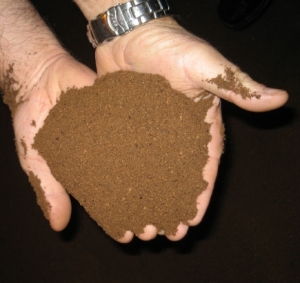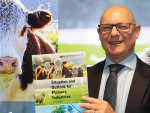Malaysian officials have confirmed no palm kernel expeller (PKE) has been exported to New Zealand from the processing mill that Federated Farmers has reported concerns about.
The Ministry for Primary Industries (MPI) is taking the concerns about post-production handling of PKE very seriously, says director plants, food and environment Peter Thomson.
"There are stringent safeguards in place that ensure PKE is safe for use, and MPI is requiring full assurance that these safeguards have not been breached," Thomson says.
"PKE is an important stock feed for New Zealand. It is a by-product of oil extraction from the kernel of palm seeds, and has been imported into New Zealand for 10 years
"Concerns are raised from time to time that PKE is a potential pathway for foot and mouth disease into New Zealand. MPI has reviewed all of the documentation for PKE shipments from Malaysia since 2011 and has met with Malaysian officials to ensure there is a full understanding of New Zealand's concerns. MPI officials will also visit Malaysian production mills in May this year to ensure each step along the supply chain is being correctly adhered to in accordance with New Zealand's Import Health Standard."
This follows two Feds members saying they visited Malaysian factories last year and saw
birds, rodents, monkeys and cattle near processed PKE in an area known to experience foot and mouth outbreaks.
Thomson says Malaysian officials are also carrying out their own investigation to ensure they are adhering to New Zealand's requirements.
"PKE must be produced and stored in factories dedicated to the processing of palm fruits and kernels, and kept clean and free of potential contamination post-production. Documentation must attest that handling, storage and inspection post-production is correctly managed, and the product is also inspected before export. Every shipment is fumigated.
"MPI has also updated its foot and mouth risk assessment with a renewed focus on PKE.
"The assessment has confirmed the suitability of New Zealand's import requirements for PKE. All PKE is heated to 85C, and the foot and mouth virus cannot survive those temperatures. PKE is processed only in dedicated plants, to remove the possibility of contamination from other products, and there are stringent controls all along the supply chain."
"MPI will continue to work closely with Federated Farmers in ensuring the robustness of the safeguards that are in place to protect our primary industries."
Further information is available on the MPI web site at: http://www.biosecurity.govt.nz/files/regs/imports/plants/q-and-a-palm-kernel-imports.pdf











